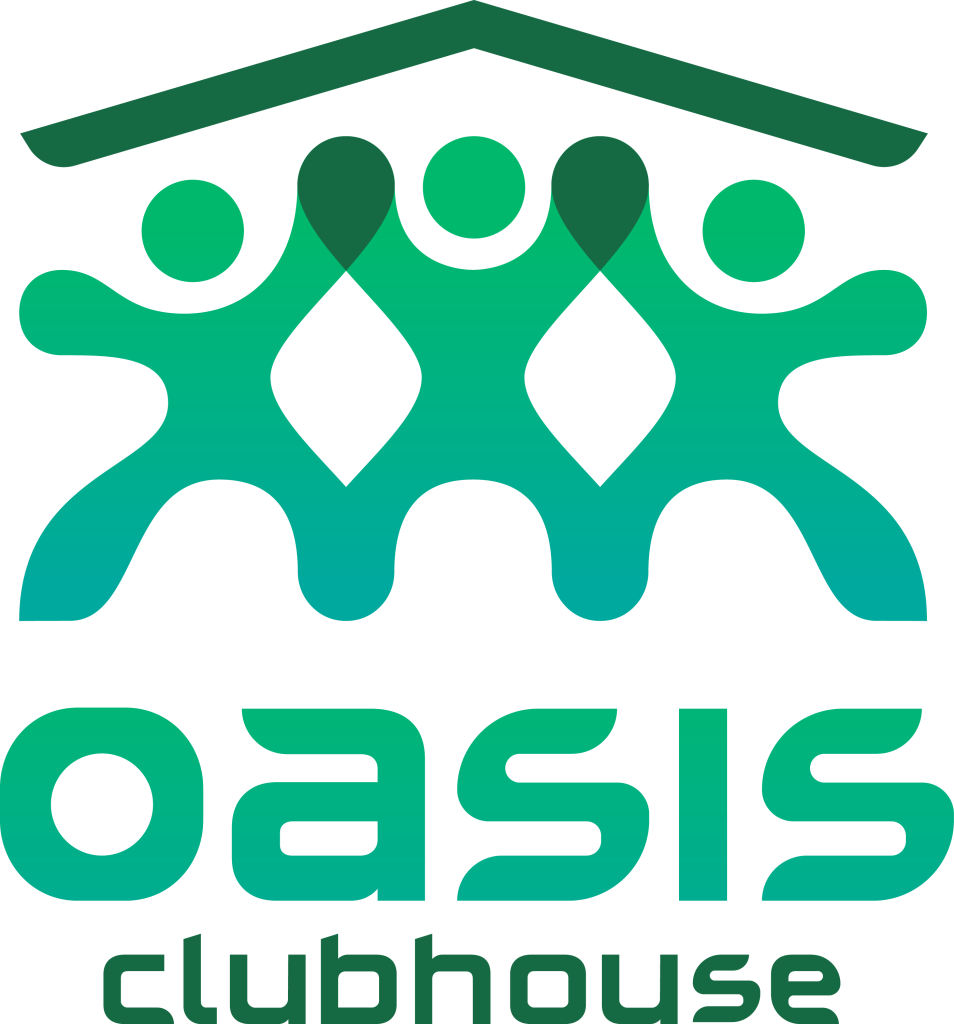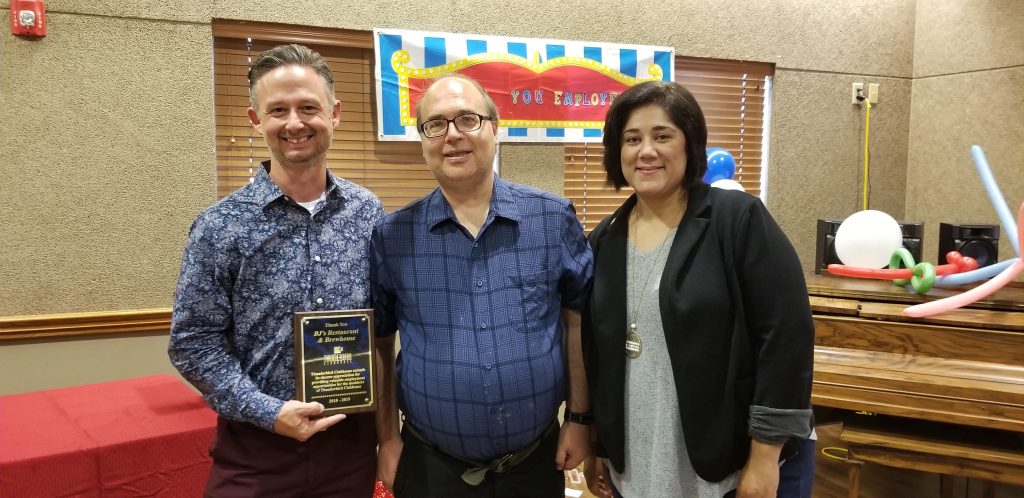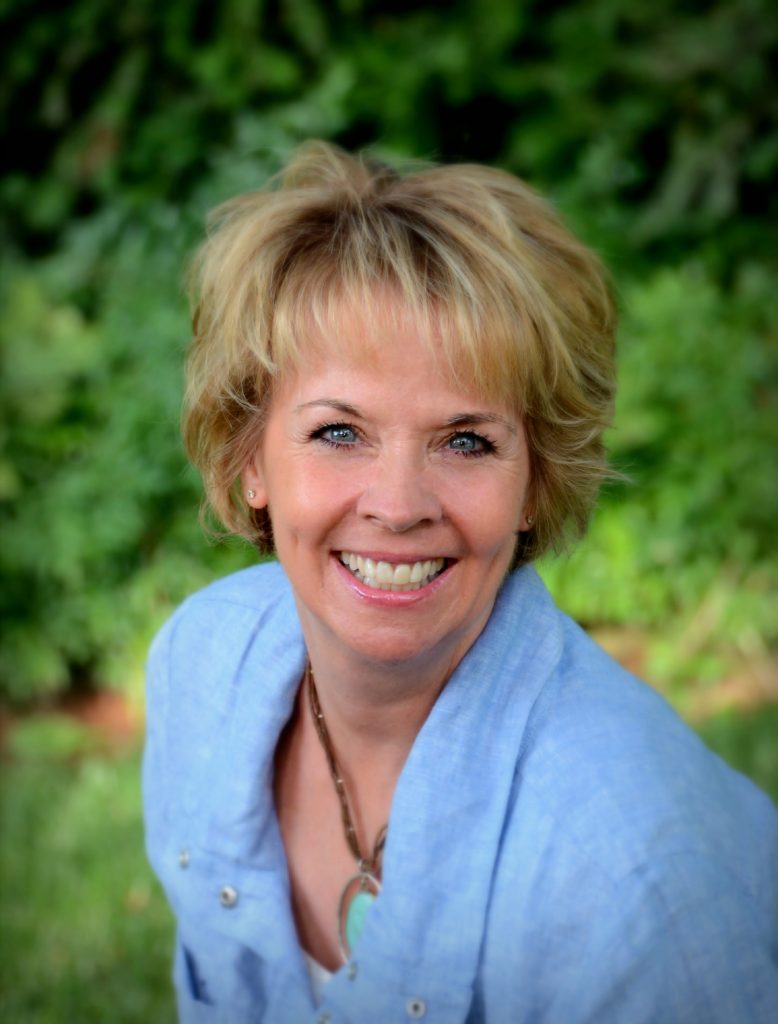
The vision
Can you imagine a community where having a serious mental illness does not have to mean loneliness, isolation, or poverty? This is the vision of mental health recovery– the “next steps” of helping adults living with chronic mental illness reach their greatest potential. Welcome to the vision and purpose of Oasis Clubhouse. I am proud to be a Board Member. I want to share the good news about bridging this often missing link in the continuity of care for people living with serious and persistent mental illness (SMI).
The Mission
The Oasis Clubhouse mission is “to empower and restore hope, independence, and self-worth for people living with a mental illness.” The Clubhouse will provide access to social, educational, and employment opportunities for all members. Clubhouse International, the founding organization, will accredit Oasis over the next three years, providing immersive training and mentorship. This evidence based model has psychosocial rehabilitation at it’s core. Mental health recovery requires community– and the Clubhouse Model creates community. Oasis will be the third Clubhouse in Oklahoma, and is set to open it’s doors in early 2024.
The Clubhouse Movement
Fountain House in New York, established in 1948, was the first Clubhouse. Fountain House is still a thriving community. Over the past 50 years, the Clubhouse movement has expanded to include over 300 locally managed Clubhouses in 40 states and 30 countries. I partnered with Bill, a Founding Member of Oasis, to present about Oasis and The Clubhouse model at a recent Community Resource Coalition meeting in Edmond. It was rewarding to bring awareness of this growing movement to local mental health professionals. Bill described the Clubhouse as a “life line, where you can be your quirky self and people are happy to see you.” He gave some wonderful examples of the transformations that he has observed in his eight years of membership.
Psychosocial rehabilitation model
Clubhouse membership is free, and available to all adults living with a mental health diagnosis. Once you are a member you are a member for life. Clubhouse members are essential to the functioning of the program. The hours follow a regular work day, five days a week. There are social activities after hours and on weekends over holidays. Members engage with the clubhouse at any level that they are comfortable:
Being: Sit and drink coffee or water and/or eat a delicious low cost lunch.
Doing: Learn job skills and build confidence through computer work, culinary training, and administrative/building duties that keep the Clubhouse running. Staff will assist in access to housing, healthcare, employment, or educational goals.
Socializing: Connect as a respected peer in the community, and develop friendships.
According to Clubhouse International date Clubhouse Members are significantly more likely to report that they have close friendships and someone they could rely on when they needed help. The psychosocial model of rehabilitation involves a balanced relationship of giving and receiving within the Clubhouse. This creates a culture of collaboration and a promise of “radical acceptance.” It is truly a busy and transformational place.
Evidence based treatment
Peer-reviewed research have documented the positive results of the Clubhouse Model. Compared to the general population living with serious mental illness:
- 42% or more Club Members are employed (More than twice the average rate among SMI)
- Club Members experience significantly less hospitalizations and incarcerations.
- Club Members report less loneliness.
In 2021 Clubhouse International received national and international recognition. They were awarded the Special Presidential Commendation from the American Psychiatric Association, and were cited as an example of a rights-based, recovery-focused approach by the World Health Organization.
Mental Health and family

BJ employee representative
I first learned about Clubhouse through my brother, Chris Yager. Chris struggled with learning disabilities and emotional dysregulation his whole life. In school, making and keeping friends was difficult. Chris experienced his first psychotic break when he was eighteen years old. He tried and failed multiple times to live independently. Each effort resulting in hospitalization. Chris lived in residential care for ten years. He felt confined and limited in this structured setting, and envisioned a different plan for his recovery. Chris asked me to be his mental health advocate. Together we contacted various forms of community mental health to find the right amount of support for his mental health needs. Chris was hospitalized at least twelve times in the first twelve months of seeking a new plan of care. It was a discouraging time for both of us.
Mental Health Recovery through Clubhouse
Thunderbird Clubhouse in Norman was a game changer. The Staff quickly mobilized to assist Chris in finding housing, and a new psychiatrist. With his symptoms managed and secure housing he developed friendships with other members. Chris wanted work, and started building job skills. He began transitional work with a job coach, provided by Clubhouse.
Chris always loved eating at BJ’s restaurant in Norman and expressed an interest in working there. Gaining experience in the food industry through Clubhouse, Chris got a job at BJ”s. He went on to earn his green apron, which signifies positive leadership at the restaurant. Chris was proud to show everyone in the family his green apron. Chris was a Clubhouse Member for five years. He had meaningful work, friends, and lived independently. The quality of his life was greatly improved, as he thrived. This is what a family member wants, better mental health and quality of life for their loved one. Because of the psychosocial model, Chris’s symptoms were well managed and he only needed two brief hospitalizations until his death (cardiac) in 2019. The Clubhouse model transformed my brother’s life and I want that experience to be available to other families.
Oasis clubhouse
The Oasis Board meets monthly as a group to make the vision possible for the Edmond-metro area. There are committees working behind the scenes to locate a space, hire an Executive Director, apply for grants and public funding sources. At this phase of Oasis, we are actively socializing with individuals, groups, and agencies to develop interest and excitement within the community. And soon we will begin fundraising. You can help us to spread the good news of Oasis for members and their families.
Here is how you can help:
- Share this blog post.
- Think of people and organizations that need to know about Oasis.
Feel free to contact me dr.lisamarotta@gmail.com with any questions or suggestions about who might want an Oasis team to come speak about The Clubhouse program. Working together we become part of The Clubhouse Movement, demonstrating that Mental Health Recovery is a real possibility for all people, given the right support.
Health & Wellness,
Dr. Lisa Marotta

